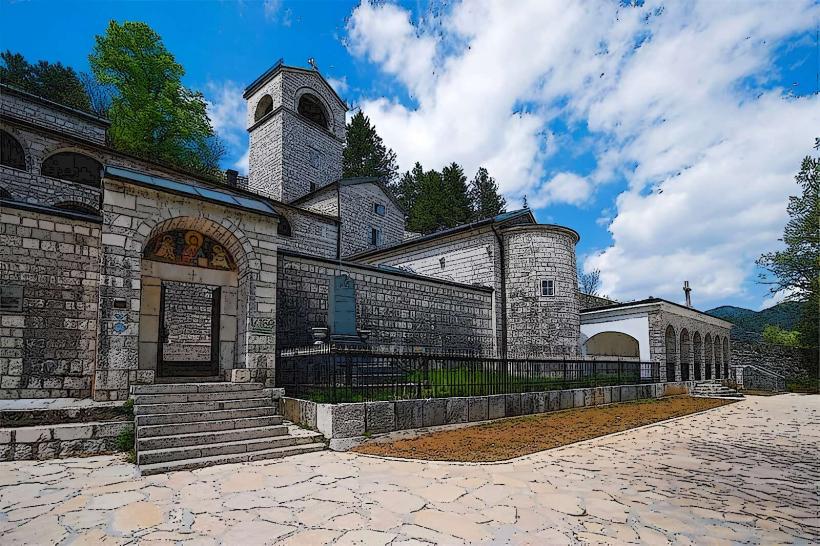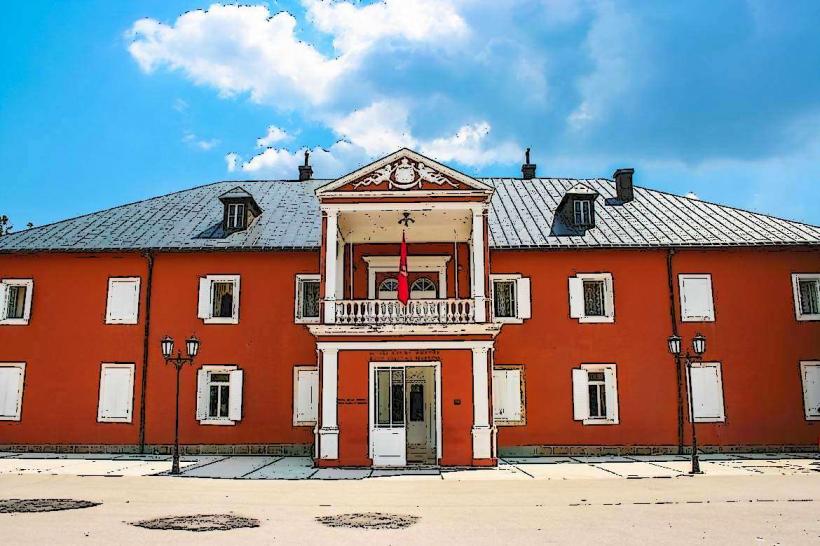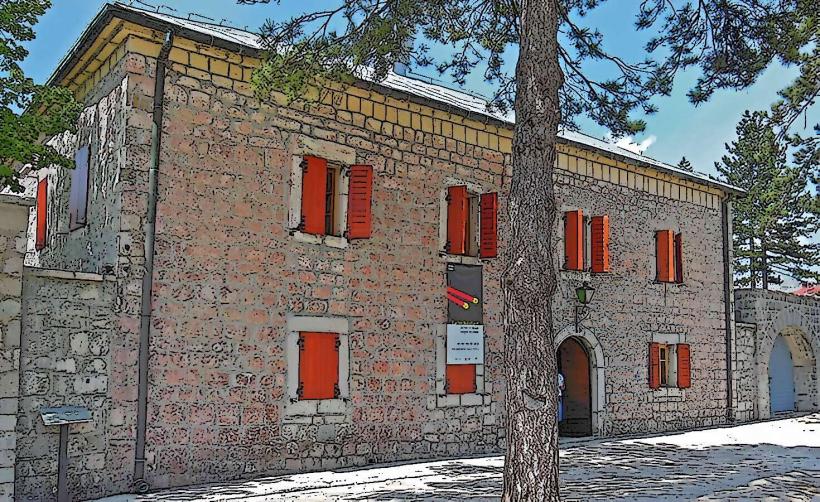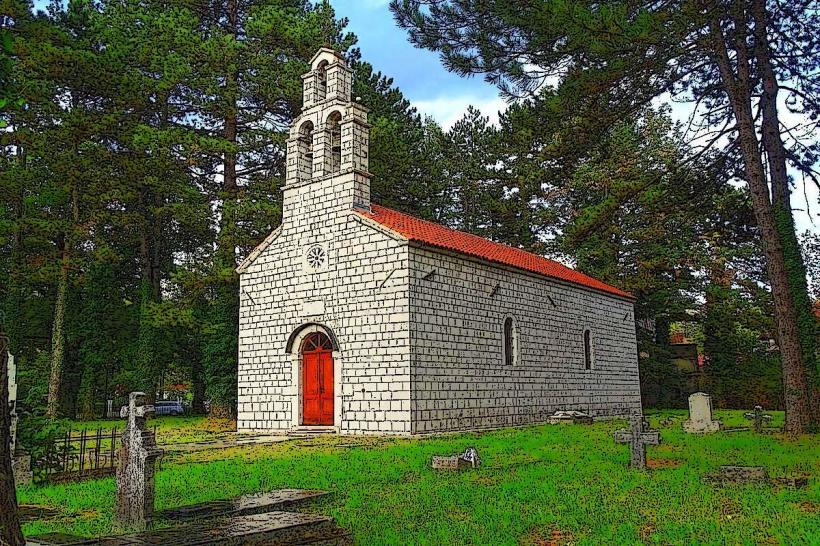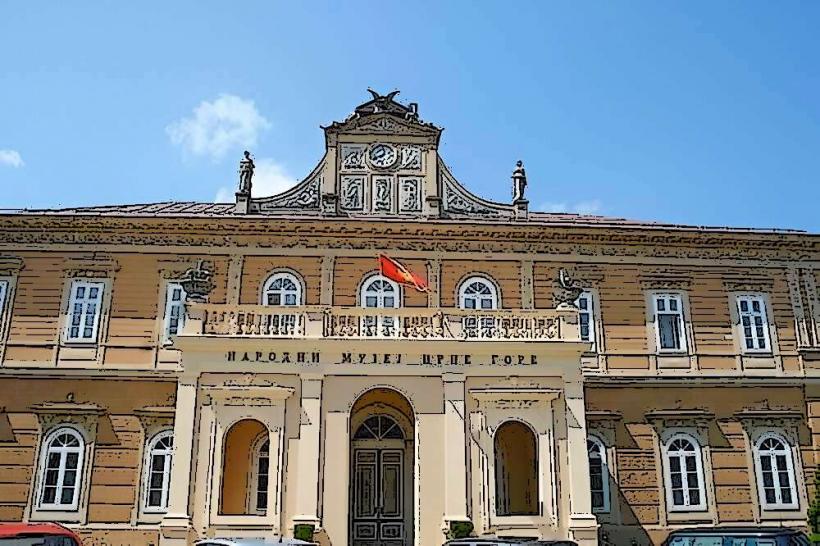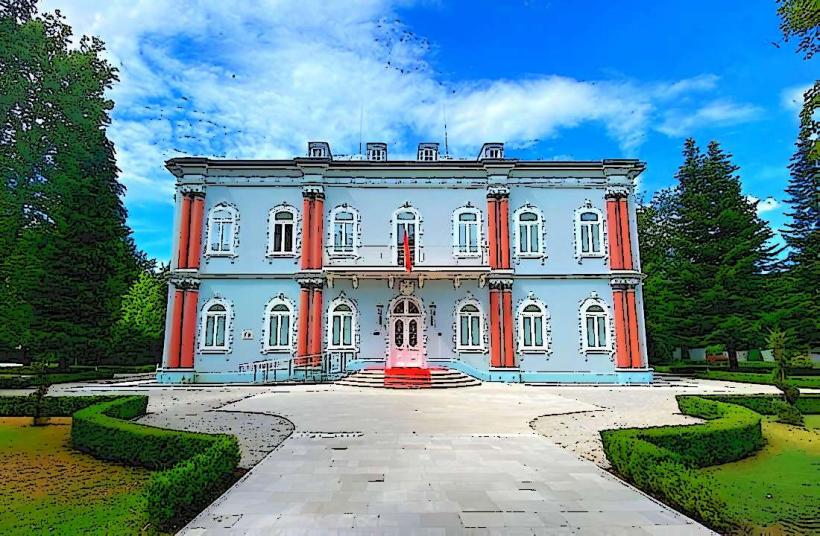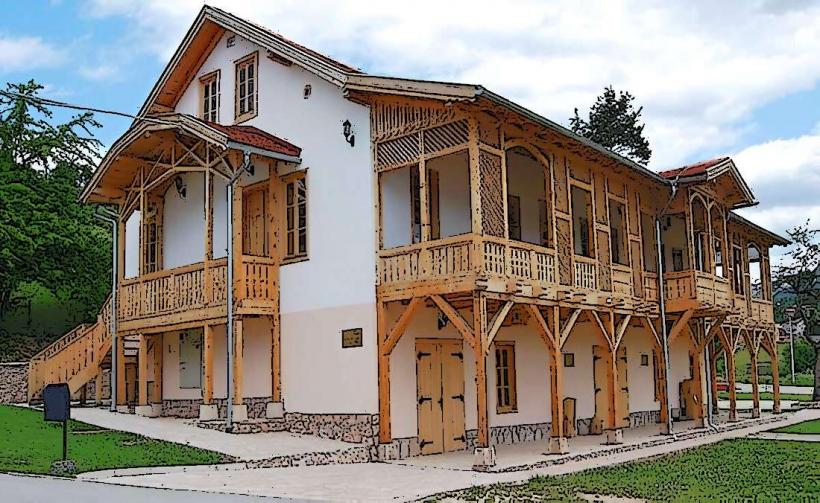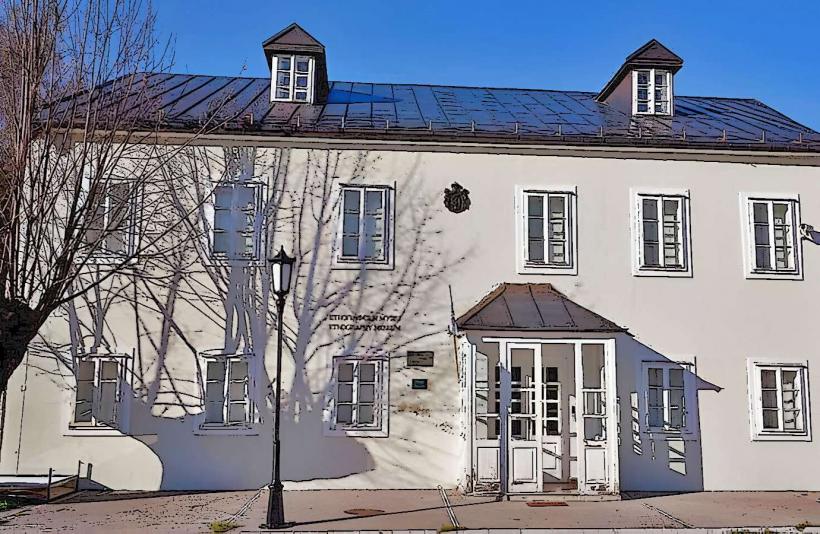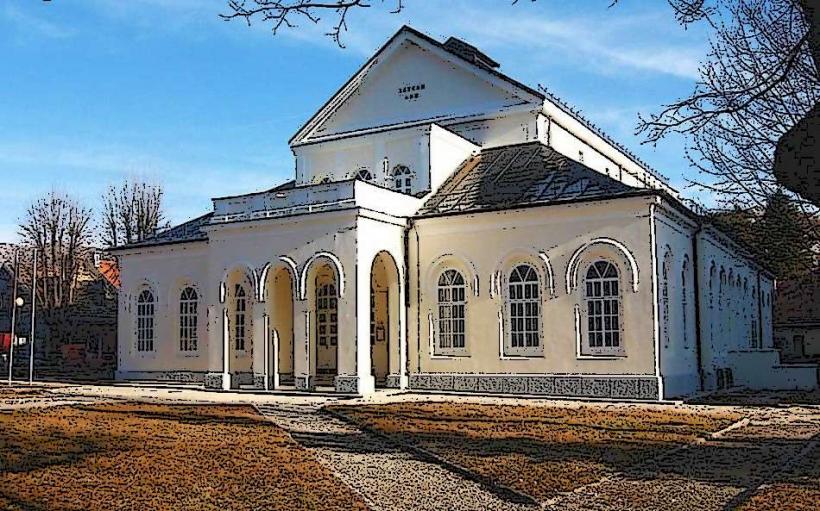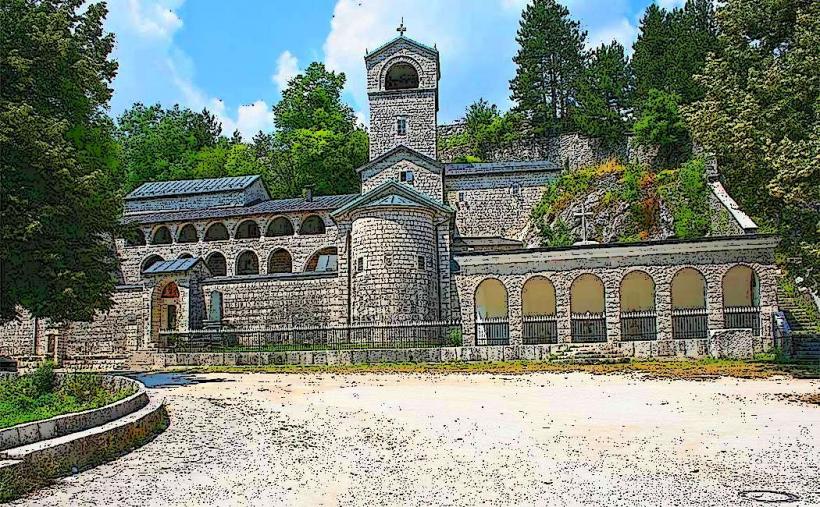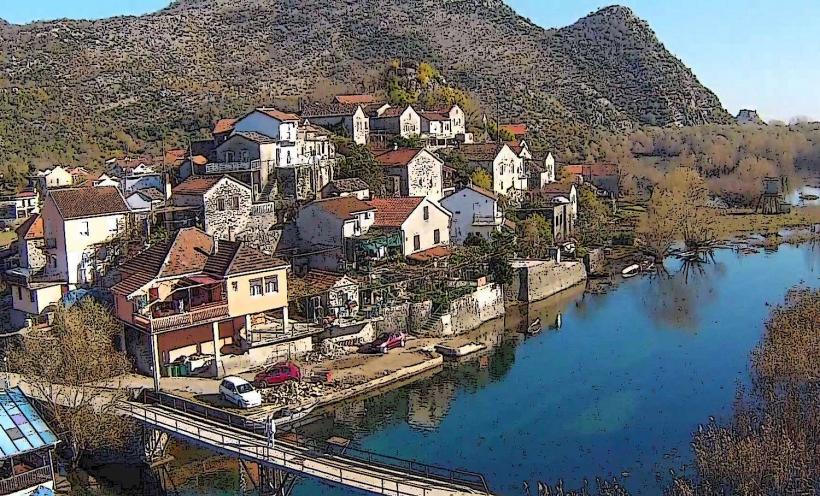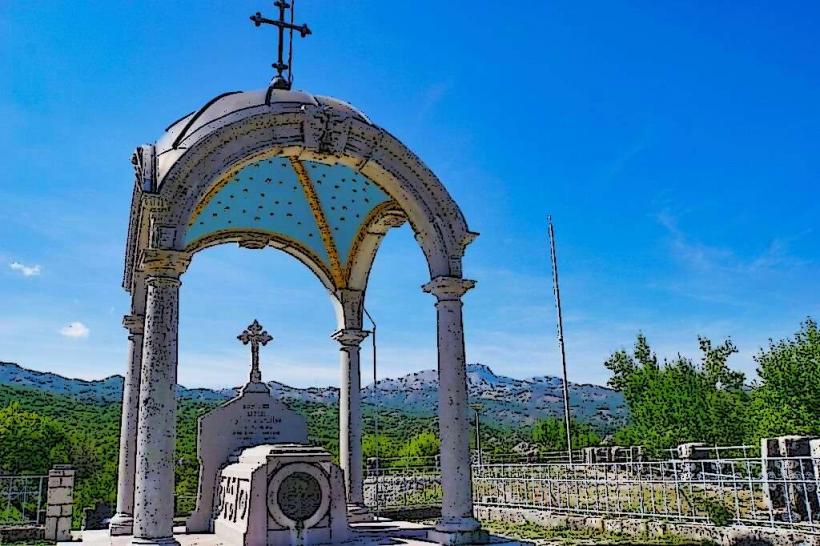Information
Landmark: Historical Foreign EmbassiesCity: Cetinje
Country: Montenegro
Continent: Europe
Historical Foreign Embassies, Cetinje, Montenegro, Europe
The concept of foreign embassies as diplomatic missions representing foreign governments in a host country began in the early centuries of modern diplomacy. In Montenegro, foreign embassies played a crucial role in the development of international relations, particularly as the country navigated its independence and sovereignty. Here are some historical foreign embassies related to Montenegro and their significance:
Ottoman Empire and Montenegro
For centuries, Montenegro was under the influence of the Ottoman Empire, and during this period, diplomatic missions were focused primarily on relations with the Ottomans. However, Montenegro maintained a degree of autonomy, which was significant in its diplomatic relations with other European states.
- Ottoman Embassy in Cetinje:
- In the late 19th century, the Ottoman Empire maintained a diplomatic mission in Cetinje, the historical capital of Montenegro. The Ottoman presence in Montenegro had significant cultural and political implications during this period of the empire’s decline in the Balkans.
Austrian-Hungarian Empire and Montenegro
The Austro-Hungarian Empire had extensive relations with Montenegro, especially after Montenegro’s independence in the 19th century. The Austro-Hungarian Empire sought to increase its influence in the Balkans, and Montenegro played a role in the regional balance of power.
- Austrian Embassy in Cetinje:
- Austria-Hungary maintained a diplomatic presence in Cetinje starting from the mid-19th century. Relations were formalized, and Montenegro received a number of Austrian diplomats who played key roles in negotiations during Montenegro’s time as an independent kingdom.
Russian Empire and Montenegro
The Russian Empire had long-standing ties with Montenegro, particularly due to shared Orthodox Christian roots. Russia’s influence on Montenegro was often seen in the political and military alliances formed between the two countries.
- Russian Embassy in Cetinje:
- Russia established diplomatic missions in Montenegro as early as the 19th century. During this period, the Russian Empire had a significant role in Montenegro’s foreign policy, especially in the context of the Ottoman Empire's dominance over much of the Balkans.
- Russian diplomats in Cetinje were involved in various treaties and alliances with the Montenegrin royal family, including the support of Montenegro during wars for independence.
Kingdom of Montenegro and Foreign Representation
After Montenegro declared its independence from the Ottoman Empire in the 1870s, it began to establish its own network of foreign embassies and consulates in other European capitals.
- Embassy in Belgrade (Kingdom of Serbia):
- The Kingdom of Montenegro maintained diplomatic relations with neighboring countries, and the Embassy of Montenegro in Belgrade was one of the most important. As Montenegro and Serbia shared cultural, religious, and political ties, this embassy played a significant role in facilitating relations between the two Slavic nations.
- Embassy in Vienna (Austro-Hungarian Empire):
- Montenegro established a diplomatic presence in Vienna during the 19th century. The embassy represented Montenegro’s interests within the complex political environment of Central Europe, particularly in the Austro-Hungarian sphere of influence.
- Embassy in St. Petersburg (Russian Empire):
- The Russian embassy in St. Petersburg was also crucial for Montenegro, where Russian diplomacy often acted as a safeguard for Montenegrin independence from the Austro-Hungarian and Ottoman empires.
Kingdom of Yugoslavia and Foreign Diplomatic Missions
After Montenegro became part of the Kingdom of Yugoslavia in 1918, foreign embassies were no longer directly representing Montenegro but rather the larger Yugoslav state. Nevertheless, Montenegro maintained a degree of influence through the central government.
- Yugoslav Embassy in Paris, London, and Washington:
- The Kingdom of Yugoslavia established embassies in major European capitals such as Paris and London. These embassies were important for foreign policy, especially after World War I, when Yugoslavia sought to assert itself as a new European power.
- Embassy in Rome:
- Italy had significant diplomatic ties with the Kingdom of Yugoslavia, and the embassy in Rome was strategically important due to Italy’s interest in the Balkans during this period.
Post-World War II: Socialist Federal Republic of Yugoslavia
After World War II, Montenegro became part of the Socialist Federal Republic of Yugoslavia (SFRY), and embassies were organized under the federal government rather than individual republics. Nonetheless, Montenegro continued to maintain a presence in international diplomacy through Yugoslavia’s embassies and consulates.
Yugoslav Embassy in Washington, D.C.:
- Yugoslavia established strong relations with the United States after World War II, and the embassy in Washington, D.C. served as a key location for Cold War diplomacy. The embassy helped facilitate the exchange of diplomats, as well as negotiations between Yugoslavia and the Western powers.
Yugoslav Embassy in Moscow:
- Relations with the Soviet Union were also central to Yugoslavia’s foreign policy, and the embassy in Moscow was one of the most significant during the Cold War. Montenegro, as part of Yugoslavia, was involved in several diplomatic initiatives through this channel.
Montenegro's Modern Foreign Embassies
Since Montenegro’s independence in 2006, the country has established its own embassies and diplomatic missions across the world.
Embassy in Washington, D.C.:
- Montenegro has its own embassy in the United States, reflecting its independent status on the international stage.
Embassy in Brussels (EU Headquarters):
- As a candidate for European Union membership, Montenegro has developed a strong diplomatic presence in Brussels, where it works with the EU institutions.
Embassy in Belgrade:
- Montenegro maintains a strong diplomatic presence in Serbia, reflecting the shared cultural, historical, and political ties between the two countries.
Embassy in London:
- The Embassy of Montenegro in London serves as a key diplomatic mission for the country, facilitating relations with the United Kingdom and acting as a liaison for Montenegrin citizens abroad.
Conclusion
Historically, foreign embassies have played an essential role in Montenegro's diplomacy, whether under the rule of the Ottoman Empire, as part of the Kingdom of Yugoslavia, or as an independent state. From Russian and Austrian embassies to the modern diplomatic missions of an independent Montenegro, these embassies have been instrumental in shaping Montenegro's relationships with foreign powers, advancing its interests, and facilitating peaceful relations across the world.

